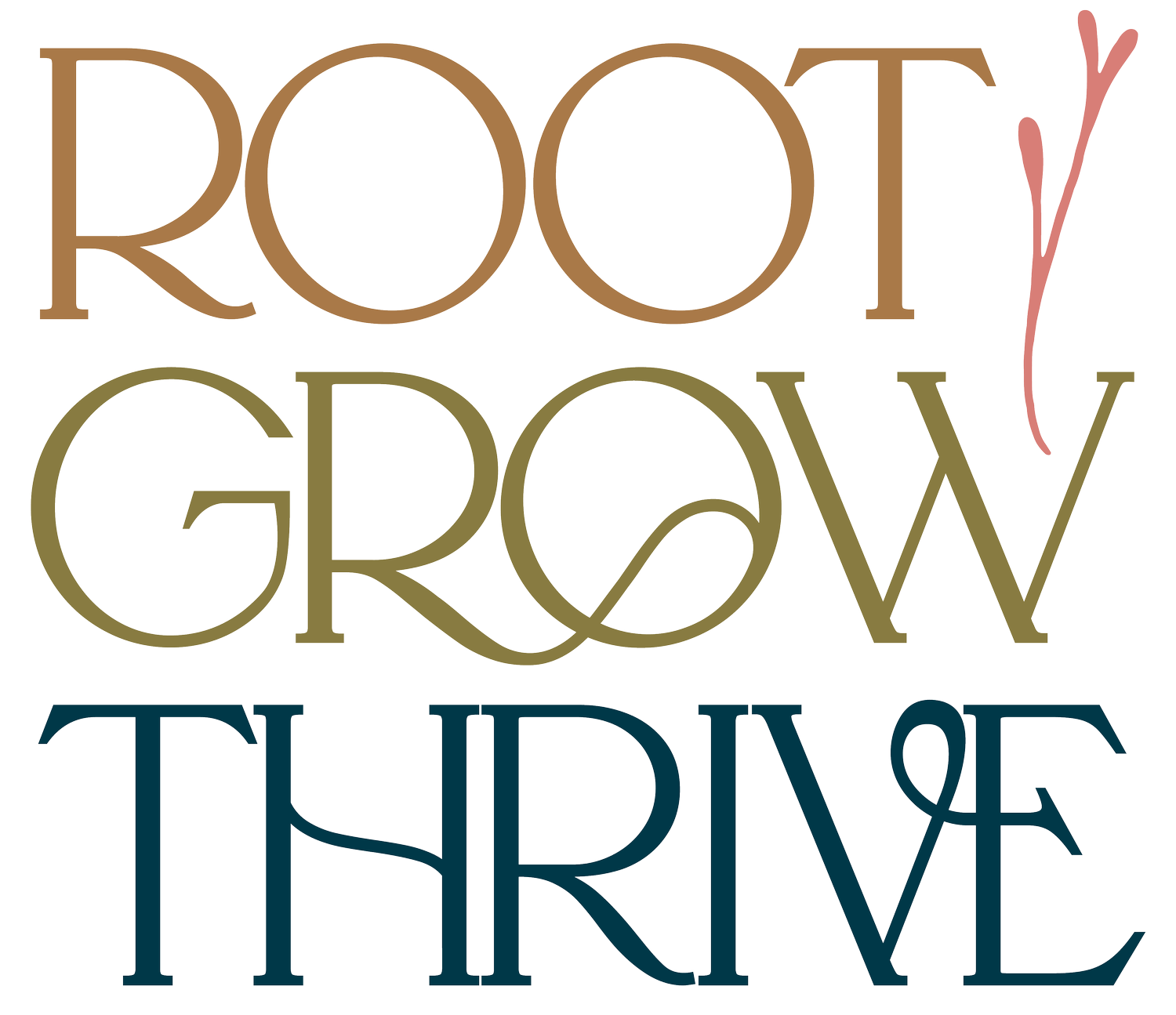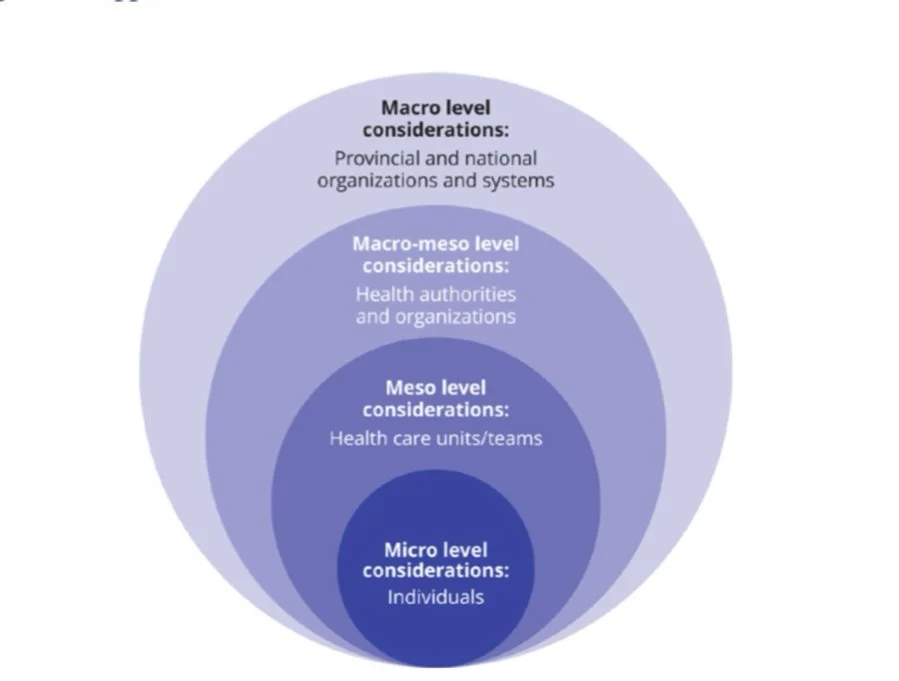Reimagining Your Vocation: Broken Systems Doesn’t Mean Broken Soul
Recently I attended a webinar on moral distress in healthcare by the founders of Don't Clock Out and Introspective Spaces . One of the essential points that really struck me was to fight burnout and moral fatigue, we must highlight the importance of fostering moral agency in our work and vocational life.
Moral agency is the ability to make decisions that align with ones values and ethics. That we have the freedom to make choices that are, on a gut level, we know are right or wrong. So when systems usurp our ability to make decisions that align with our ethical code, we can have symptoms of shame, blame, regret, frustration, and even trauma.
Moral agency is another term for soul burnout. When we are under moral distress, we feel as if our choice and voice are taken from us. Our ability to be agents of change is an essential part of our healing process, and it always begins with awareness of the problem.
For those in healing and helping professions, work is often a vocation, not just a job. It’s an expression of purpose, compassion, and a deep commitment to creating a better world. But when systemic pressures, chronic stress, and the weight of moral injury take hold, that sense of calling can begin to feel like a burden.
When I was burned out, I didn't feel as if I had much control over the broken mental health systems I was working under. I've learned as a burnout caregiver that so many of us feel powerless, but feelings we know are signals for attention. While we can view all of this on a macro level (hellooo social justice initiatives that address institutional racism, colonization, and capitalistic greed), a meso level (by fostering community and relationships for sustainability and change), or a micro level (by acknowledging and fostering our own needs for inner work and resourcing.) As a therapist and soul care provider, my aim is to address all these levels in my clients' lives, and have my Root Grow Thrive practice have a foot in each of those levels.
Burnout, vocational stress, and moral injury are not just personal challenges—they are systemic issues. These struggles often arise from environments that demand too much and give too little, leaving individuals caught between their desire to help and the structural barriers that make meaningful work harder to sustain.When we find ourselves feeling stuck and overwhelmed, burned out and morally fatigued, it is time to reimagine vocation—not by asking individuals to simply “self-care” their way out of burnout, but by addressing the systemic roots while building resilience at multiple levels.
The Systemic Basis of Vocational Stress and Burnout
The pressures you feel at work are rarely just about your personal capacity. They’re shaped by larger systemic forces, including:
• Underfunded systems: Healthcare, education, and social services often lack adequate resources, leaving workers overwhelmed and under-supported.
• Cultural glorification of overwork: Our culture equates productivity with worth, encouraging sacrifice at the expense of well-being.
• Moral injury: When you’re forced to act in ways that conflict with your values—due to systemic constraints, policies, or lack of resources—it creates deep emotional and ethical distress.
These forces create environments where burnout feels inevitable and where the tools we’re offered often feel inadequate to address the root causes. Folks I work with are struggling not becuase they can’t cope; their resources to cope have been stripped from them.
First Steps in Coping— on a Micro, Meso, and Macro Level
Example of micro/meso/macro model in healthcare systems. This can be applied to any organization or system in which you work or do labor.
To truly address burnout and reimagine your relationship to vocation, we must engage at multiple levels:
1. Micro Level: Personal Practices
While systemic change is essential, your well-being starts with small, intentional shifts in your daily life.
• Reflect on your values: Take time to identify what matters most to you and consider ways to improve how to better align your actions with those priorities. It helps to have a safe person you feel is supportive to you to reflect together on these. They can often see and affirm your values that you state, and ways to improve this alignment. The bigger the picture, the better, here. Take the top three, and start brainstorming how your life can or you wish could best reflect these values. Values such as autonomy, integrity, kindness, strength, courage, justice, peace. There are value inventories online that can be beneficial to brainstorm with here.
• Practice boundary-setting: Protect your energy by learning to say “no” to tasks or expectations that compromise your well-being, and “yes” to things that will deepen your connection and resources. When we are overly stressed, we can shut down. If you are able, resist this by opening your eyes to ways you can best create your own systems of support and nourishment. Who, what, where, when, and how?
• Create space for rest: Regularly pause, breathe, and engage in activities that replenish you—without guilt. Create an altar, nap, take a bath, light candles at dinner, surround your space with your favorite objects, go to a new bookstore, go out into nature, laugh with a dear friend. There are lots of ways we can define and use rest to best resource us.
What is one small action you can take to reconnect with your sense of value-driven purpose?
2. Meso Level: Community and Workplace Advocacy
Change becomes possible when we connect with others to address the environments in which we work. We’re talking our neighborhoods, our workplace, our local community—our “people.”
• Foster peer support: Build networks with colleagues to share experiences, validate struggles, and advocate for collective needs. Find peers who are like minded and you feel lighter being around. Put on the calendar ways to get peer support regularly. Like, weekly, if able!
• Push for workplace changes: Advocate for improved staffing, policies that prioritize mental health, and leadership accountability. Advocacy can look like gathering awareness of the challenges, to highlighting issues and having others repeat these in meetings, to directly asking leadership for improvements. Some workplaces may not be safe for any challenge, but if you feel as if there is safety in numbers, it may be time to host group support in advocating collective change.
• Acknowledge the emotional toll: Normalize conversations about burnout and moral injury within your organization, reducing stigma. For some, it may be simply mirroring back a difficult case with peers with kindness and a listening ear. For others, it may be laughing at funny memes in the break room with your favorite work bestie. For others, it may be to notice that we can’t carry any of this alone, and seek out professional help.
3. Macro Level: Systemic and Cultural Change
Burnout cannot fully be resolved without addressing the larger systems that perpetuate it. Some of us who are more well resourced financially, time-wise, or energy-wise, may feel driven to make an impact on a greater scale.
• Challenge overwork culture: Advocate for systemic shifts that value care, rest, and equity as much as productivity. It may mean stepping into leadership roles in your workplace that is about justice and equity. It may mean going to the state level representative with concerns or advocating for social justice, inclusivity, and equity on a bigger scale.
• Engage in policy change: Support initiatives that fund care work, improve worker protections, and ensure resources for the sectors that support healing and helping. Who in your community or state is involved with an organization that supports worker rights, healthcare wellness, or other concerns you may have? How can you be a part, even a small part, in gathering movement?
• Center equity: Recognize how systemic inequities—such as racism, sexism, and economic injustice—intensify vocational stress for marginalized groups, and work to dismantle these barriers. Where is equity being currently highlighted in your community? Where can you financially support equity movements?
Macro-level change may feel daunting, but small actions—like signing petitions, voting for supportive policies, or joining professional advocacy groups—add up over time.
IMPORTANT! Where we start—either on a micro, meso, or macro level, is usually related to our current energies and how they are being depleted. If you are currently a community organizer or non-profit leader or leader of a congregation or organization, it is time to get micro work. Your energy is being drained on a macro scale, and you deserve to nourish yourself, on a solo level, for immediate help and resourcing from an inner well. If you are currently struggling on a 1:1 level—such as a solo practitioner in private practice, perhaps looking macro or meso is where you’d start.
Reimagining Vocation as Sustainable and Just
Reimagining vocation isn’t about doing more; it’s about doing differently. It’s about creating systems and practices that align with the values that brought you to this work in the first place. It’s about seeing clearly what is in front of us, and what got us here in the first place, and how we can navigate with more autonomy and agency so we are best able to live the lives we crave filled with creativity, connection, joy. This is where our moral agency is filled, fueled, and readied for your amazing impact in the world.
When we honor our own well-being, advocate for equitable workplaces, and push for systemic change, we not only sustain ourselves—we create conditions for others to thrive as well.
__
Your work is vital. So is your well-being. Together, we can begin to reimagine a world where both are honored. Click here to schedule a free consult and we’ll find a way forward that best suits your needs.


